Will Iran's attack on Israel backfire?
The unprecedented targeting of Israel could be a 'godsend' for Netanyahu as the limits of Tehran's military power are exposed
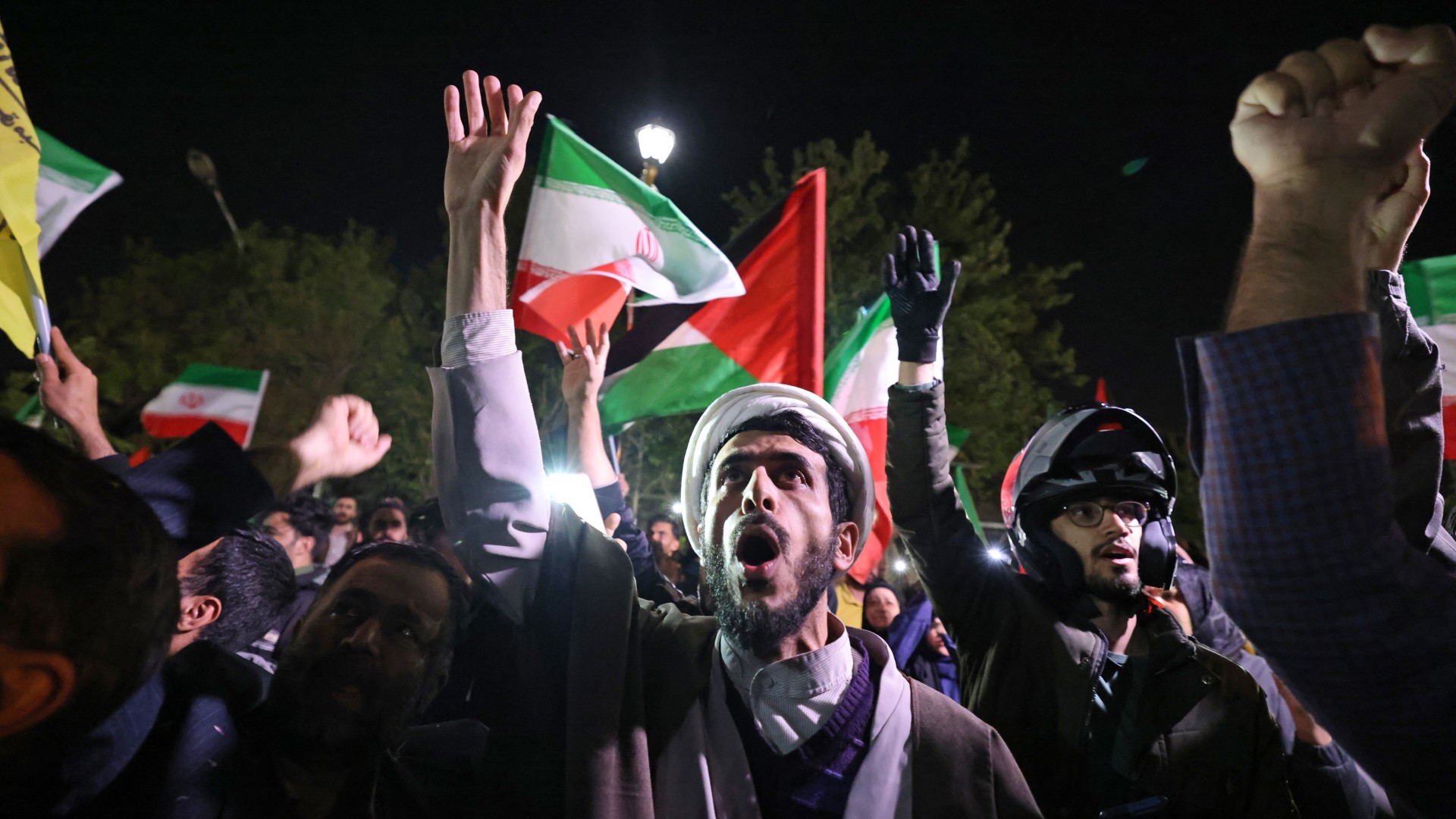
A free daily email with the biggest news stories of the day – and the best features from TheWeek.com
You are now subscribed
Your newsletter sign-up was successful
Iran's unprecedented bombardment of Israel over the weekend has changed the strategic equation of the Middle East, commentators have warned as the world awaits Israel's response.
Tehran had deliberated for two weeks about how to react to an Israeli air strike that killed seven Iranian officers, including a top general, at the country's embassy in Damascus. The answer came on Saturday evening, when Iran launched more than 170 explosive-laden drones at Israel, and around 120 ballistic missiles and 30 cruise missiles.
Iran's leaders had hoped to find a "Goldilocks option that would placate their domestic audience and deter Israel without triggering an even bigger Israeli reprisal", said The Economist. "What they settled on, though, may prove to be a strategic blunder that harms their interests."
The Week
Escape your echo chamber. Get the facts behind the news, plus analysis from multiple perspectives.

Sign up for The Week's Free Newsletters
From our morning news briefing to a weekly Good News Newsletter, get the best of The Week delivered directly to your inbox.
From our morning news briefing to a weekly Good News Newsletter, get the best of The Week delivered directly to your inbox.
What did the commentators say?
"Iran isn't a phantom boogeyman any more," said Politico, and that's a "godsend" for Israel's Prime Minister Benjamin Netanyahu, who can turn Saturday's attack to his "political advantage". He has faced increasing pressure at home and abroad over the war in Gaza, but Tehran now looks to have "let him off the hook" and made the case for support for Israel "almost unanswerable".
Joe Biden said US support for Israel was now "ironclad", while Rishi Sunak said Britain would "continue to stand up for Israel’s security".
Netanyahu has also long pushed the idea that Tehran's fundamentalist regime poses the most serious – and indeed, existential – threat to Israel. Mohammad Jamshidi, a deputy chief of staff to Iran's president, tweeted that Saturday's attack changes the "strategic equation" between Tehran and Israel.
But Foreign Secretary David Cameron told BBC Radio 4's "Today" programme that the bombardment marked a "double defeat" for Iran, as Israel successfully intercepted almost all of the missiles while Tehran had shown itself to be "the malign influence in the region".
A free daily email with the biggest news stories of the day – and the best features from TheWeek.com
France and Britain – Nato's two European nuclear powers – both took part in the defence effort against the Iranian bombardment, along with the US as well as Israel's Arab allies.
This last group might seem "a strange phrase to write in the midst of the war in Gaza, but it's important to understand", said David Frum in The Atlantic. Reuters reported the involvement of Jordan's air force in intercepting and shooting down dozens of Iranian drones that violated its airspace, while the The Economist speculated that Saudi Arabia – a regional rival to Iran – may have provided surveillance and refuelling assistance to the defence effort.
"Alliances are a powerful asset," said Frum. "They also come with a price, which is that allies' views need to be consulted. Those allies, especially the United States, are saying: Pause here. That's advice Israel may not like but would be wise to ponder."
What next?
Tehran's actions allow Netanyahu to "double down" on his war against Iran-backed Hamas in Gaza, and then possibly switch to Lebanon's Hezbollah, another Iranian Shi’ite proxy, said Politico. The Israeli PM now has "greater leeway to cast the Gaza war as a struggle of national survival against a well-armed geostrategic heavyweight, led by Islamist fundamentalists pursuing nuclear arms".
As well as providing cover for Israel to pursue its military and geopolitical aims more aggressively, the bombardment also forces its war cabinet into a strategic corner, which could easily trigger a chain of events that leads to a full-blown war with Tehran.
This may have been Netanyahu's plan all along, said Bruno Maçães in The New Statesman. He may have seen the attack against the Iranian embassy on 1 April "as a way to expand the war, placing it in a more favourable position". Draw in Iran "and the swelling American criticism of Israel's actions will fall silent". Netanyahu may even think that a regional war "will be necessary sooner or later, and he may want to be the man conducting it".
Iran's operational failure in damaging Israel has also "exposed how weak they are when it comes to the conventional military threat", Brian Katulis, a senior fellow at the Middle East Institute, told The Wall Street Journal.
This could carry escalatory risks of its own. "As neither the proxy attacks by Hezbollah or Hamas nor a direct barrage on Israel appear to work," said the WSJ, "decision makers in Tehran may be increasingly tempted by the nuclear option."
Elliott Goat is a freelance writer at The Week Digital. A winner of The Independent's Wyn Harness Award, he has been a journalist for over a decade with a focus on human rights, disinformation and elections. He is co-founder and director of Brussels-based investigative NGO Unhack Democracy, which works to support electoral integrity across Europe. A Winston Churchill Memorial Trust Fellow focusing on unions and the Future of Work, Elliott is a founding member of the RSA's Good Work Guild and a contributor to the International State Crime Initiative, an interdisciplinary forum for research, reportage and training on state violence and corruption.
-
 The environmental cost of GLP-1s
The environmental cost of GLP-1sThe explainer Producing the drugs is a dirty process
-
 Greenland’s capital becomes ground zero for the country’s diplomatic straits
Greenland’s capital becomes ground zero for the country’s diplomatic straitsIN THE SPOTLIGHT A flurry of new consular activity in Nuuk shows how important Greenland has become to Europeans’ anxiety about American imperialism
-
 ‘This is something that happens all too often’
‘This is something that happens all too often’Instant Opinion Opinion, comment and editorials of the day
-
 New START: the final US-Russia nuclear treaty about to expire
New START: the final US-Russia nuclear treaty about to expireThe Explainer The last agreement between Washington and Moscow expires within weeks
-
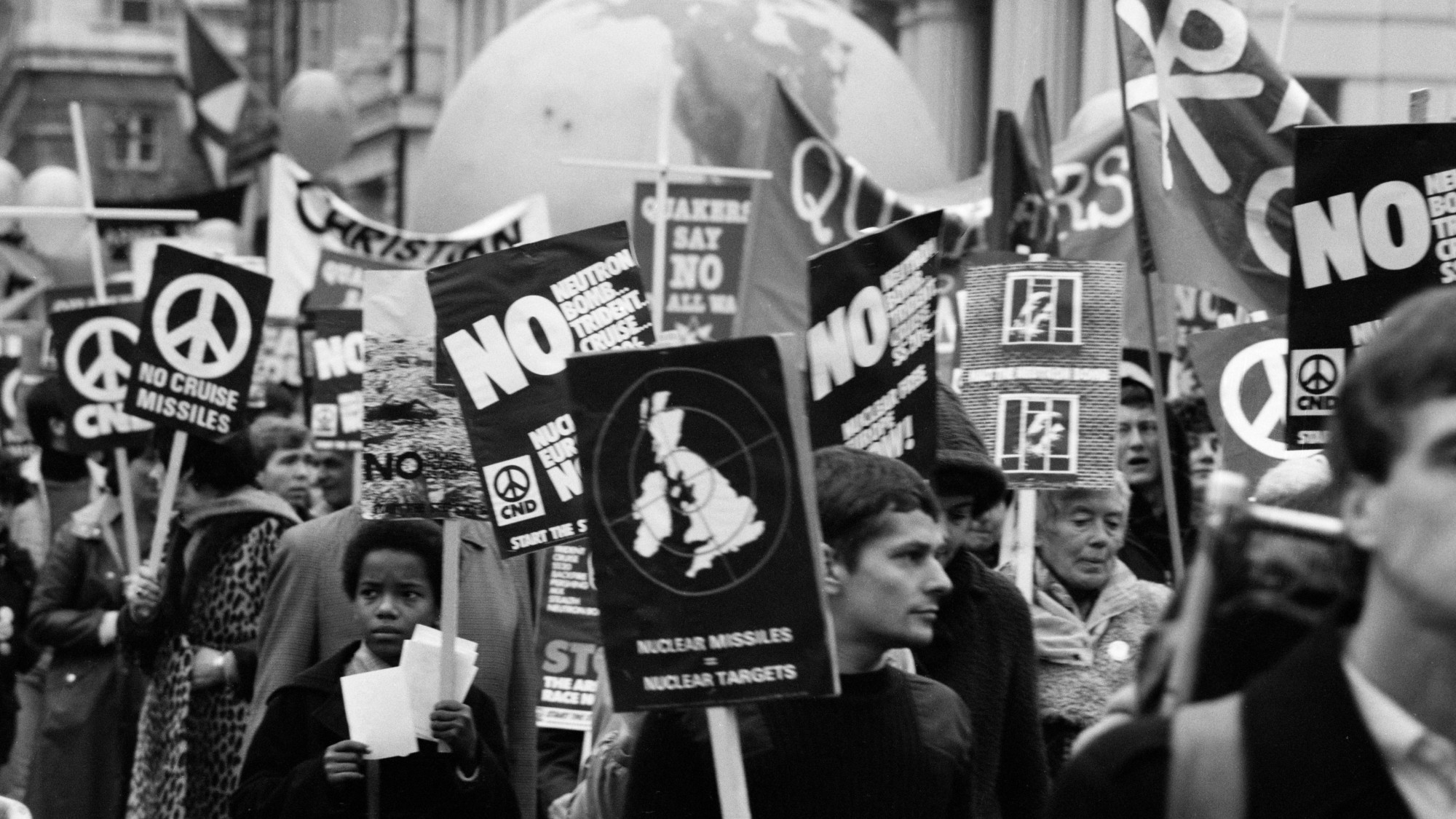 The history of US nuclear weapons on UK soil
The history of US nuclear weapons on UK soilThe Explainer Arrangement has led to protests and dangerous mishaps
-
 Vladimir Putin’s ‘nuclear tsunami’ missile
Vladimir Putin’s ‘nuclear tsunami’ missileThe Explainer Russian president has boasted that there is no way to intercept the new weapon
-
 How long can Nato keep Donald Trump happy?
How long can Nato keep Donald Trump happy?Today's Big Question Military alliance pulls out all the stops to woo US president on his peacemaker victory lap
-
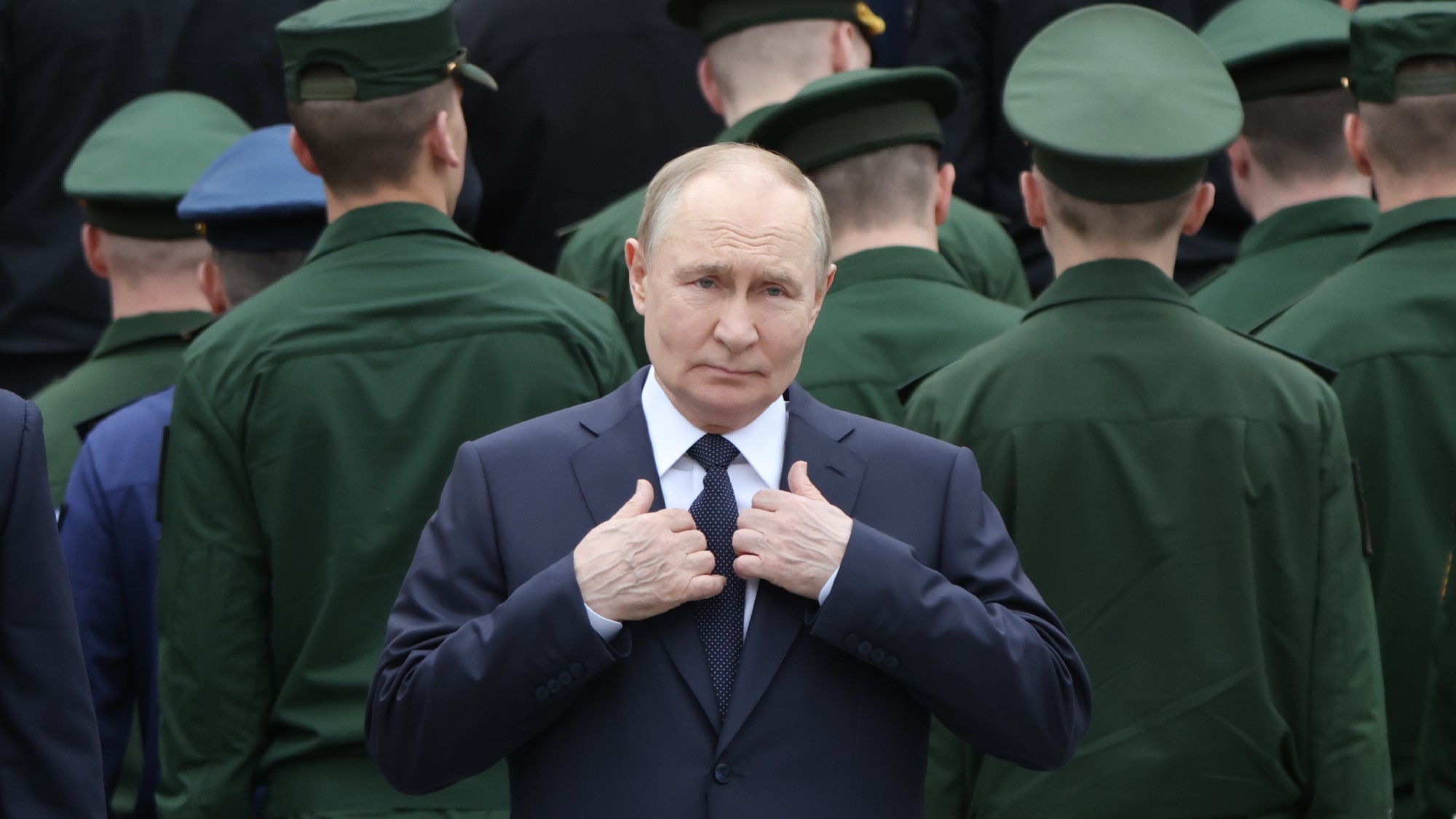 How far would Russia go for Iran?
How far would Russia go for Iran?Today's Big Question US air strikes represent an 'embarrassment, provocation and opportunity' all rolled into one for Vladimir Putin
-
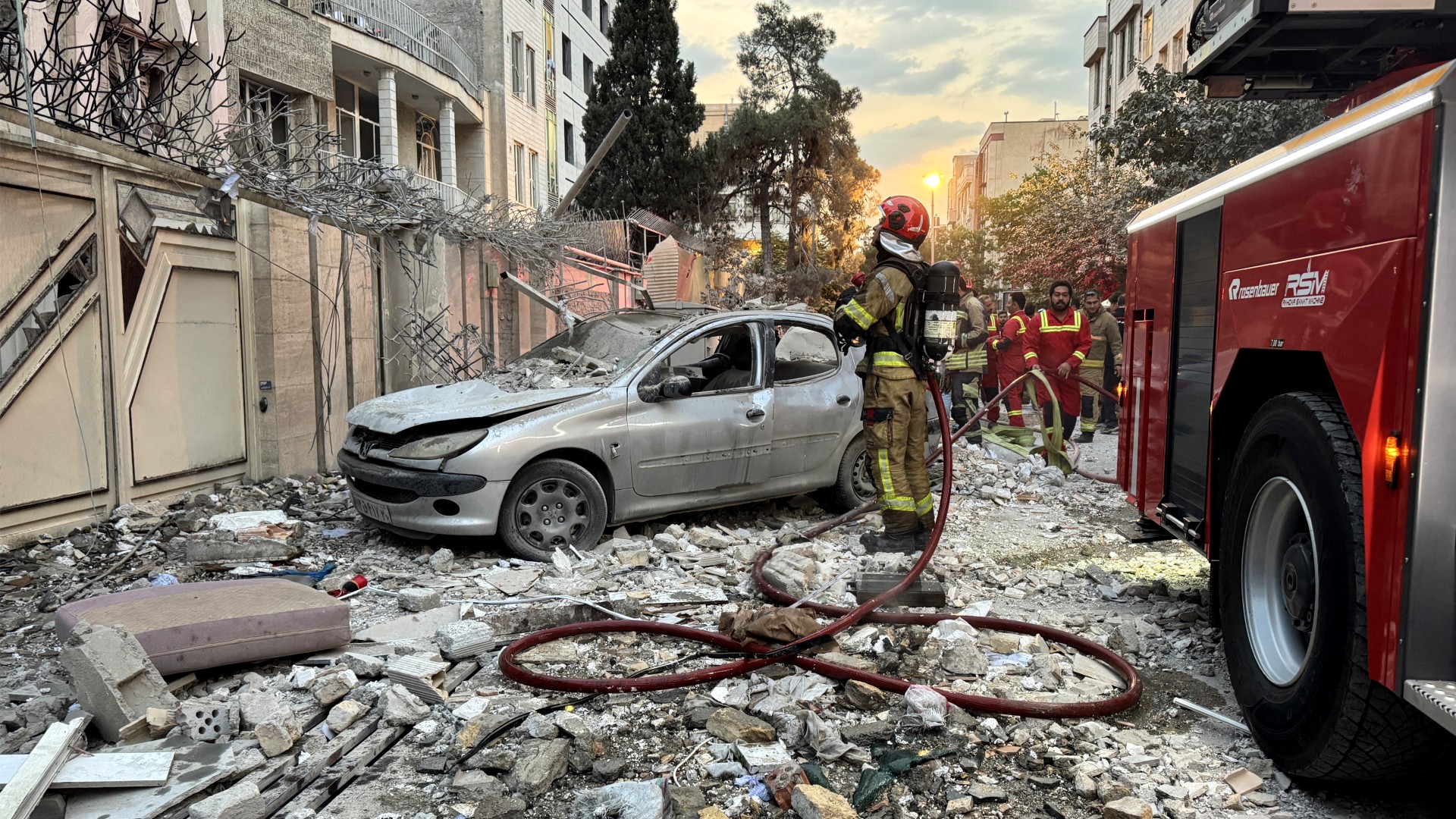 How the Israel-Iran conflict broke out
How the Israel-Iran conflict broke outThe Explainer Israel's strike on Iran's nuclear and missile programmes was years in the planning
-
 Will the UK get involved in the Israel-Iran conflict?
Will the UK get involved in the Israel-Iran conflict?Today's Big Question Keir Starmer is 'walking a tightrope' in helping Israel limit Tehran's nuclear capabilities without being seen to do so
-
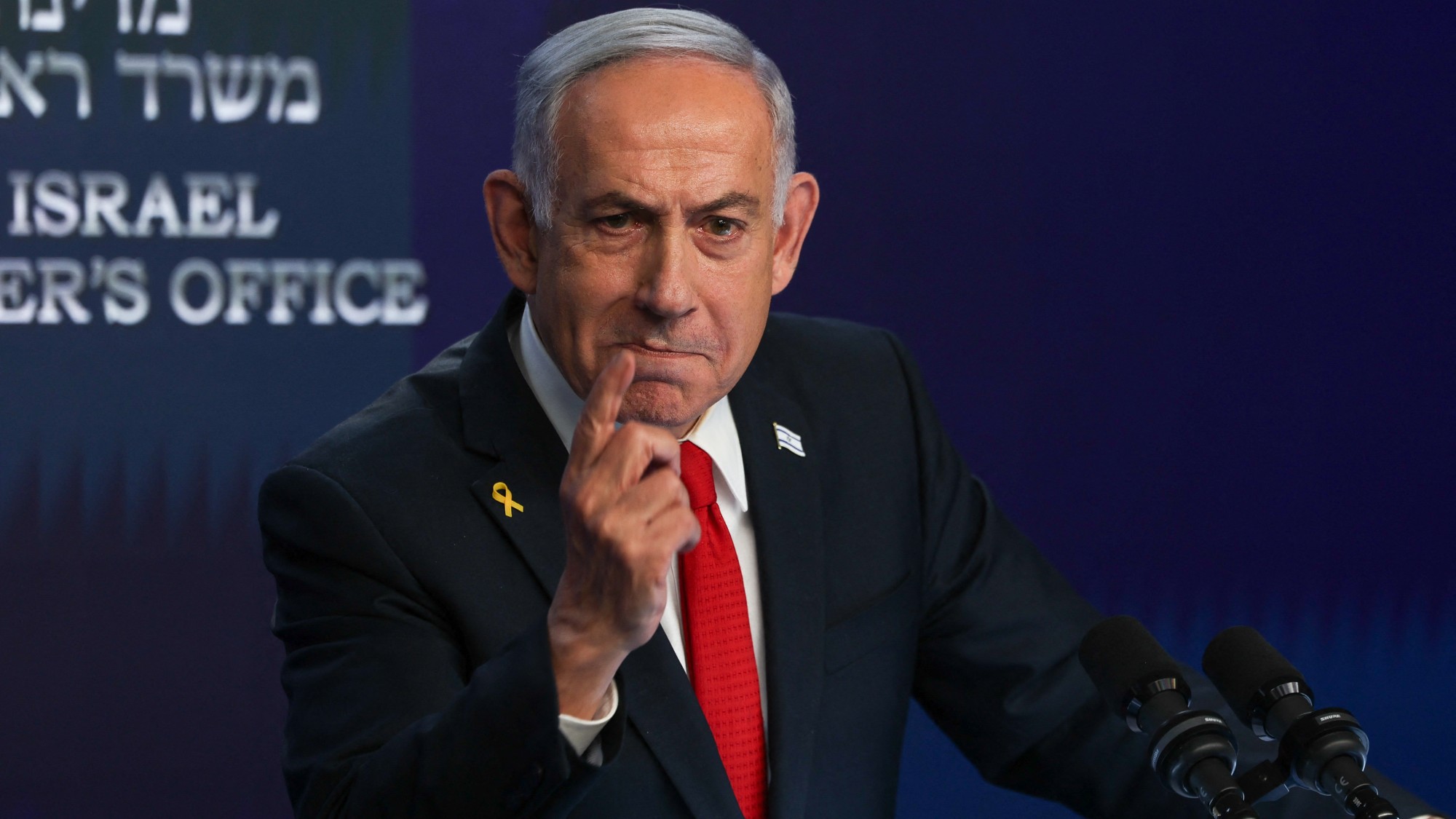 What happens if Israel attacks Iran?
What happens if Israel attacks Iran?TODAY'S BIG QUESTION Israel is 'ready to strike' and Tehran has plans for counterattacks against the US as nuclear talks appear deadlocked